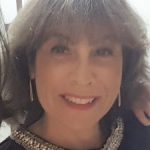Prof. Fruma Zachs

Who am I?
I am a full professor in the Department for Middle East and Islamic Studies. From 2014 to17 I served as the department head and was involved in organizing and planning student activities. This enabled me to be a better lecturer, supervisor and has influenced my interventions on faculty and university committees. I believe in clear and interesting teaching, in particular when the topic is complex, and in listening to students while trying to expose them to issues in the forefront of research. My mantra is “simplicity is the name of the game”.
What do I research and why?
At the start of my career I was mainly interested in processes of proto-nationalism and nationalism in Middle Eastern societies in general and in Greater Syria in particular. I focused on the 19th century, a period of the awakening of the Arab language and culture (known as the nahda). Syria always attracted my interest and it was natural for me to want to understand the factors governing the rise of the Syrian identity and the Syrian state. For me, the Syrian state was somewhat of an enigma that needed to be explored not only politically but through its culture and society. This oriented me roughly ten years ago toward conducting cultural, social and gender studies of Syria, primarily through the prism of women, Arabic literature, the writings of local American missionaries and others. During the last few years, I have focused on history of children and childhood and the history of emotions (Emotionology), an emergent topic in global history. These fascinating issues are likely to pave the way to a better understanding of the history of the Middle East and Syrian history in particular. I have published on children’s lullabies, orphanhood, school texts, biographies of adolescents, children’s fashion and related topics. They all constitute marginal groups in society that shed light on their daily lives, in contradistinction to most of the literature which has dealt with the political elites. After all, these groups comprise more than 50% of society and only by incorporating their narratives can we understand society and its complexities.
I believe that by studying the other, by suspending judgment we can truly build a bridge. This approach guides me in other facets of life and helps me to understand more about the region. I also believe that history plays an important part in the present. For example, the history of 19th and 20th century Syria is clearly germane to history in the 21st century.
I am married to Noam, a chemistry teacher, and we have daughters.
My academic story:
During the first year of my B.A. degree at the University of Haifa in what was then called the Department of Middle East History I realized that I would also like to learn Arabic. I was very interested in the Arabic letters that always seemed to me like magical drawings. I thus transferred to a double departmental degree combining Middle East history with Arabic language and literature. I believe this was one of the best decisions I have ever made. Upon completing my B.A. degree, I enrolled in a direct Ph.D. program which I completed in 1997. My thesis focused on the creation of the Syrian identity.
I was awarded a Rotenstreich Scholarship as well as a Wolfson scholarship and a Chevening scholarship from the British Council. At the time, I spent a few months at Harvard (U.S.A.) to research the American missionaries who were active in Greater Syria. In parallel to writing my dissertation, I worked as a TA.
For me, exploring archives and investigative work are the best parts of research. It is exciting to find a document that no one has ever researched. Immediately after completing my thesis, which was supervised by Prof. Butrus Abu-Manneh, I received a scholarship from St. Antony’s College in Oxford (UK) were I stayed for a year and began to write my first book. Upon returning to Israel in 2000, I joined the staff at the University of Haifa and have been teaching here ever since.
Students I supervise and their research:
Supervising students is a challenging which I take seriously since these students are likely to become the researchers of the future. I believe their work can pave the way for new directions in the field. Thus, I am always happy to assist hard working students, who have a goal in mind and are willing to devote a few years to complete. In return, I try to support, and develop their depth of thought. I welcome future students who are interested in Syria.
Here are a few examples: In 2019, Bshara Abu- ‘Uksa completed his MA on Adib Ashaq, a nahda intellectual of the 19th century on which little has been written. Avital Holdengerber, currently the Head of the Arabic Department in Oranim College, is working on her Ph.D. thesis on the myth of Queen Zenobia and the Syrian city of Tadmor. Elad Giladi is completing his Ph.D. describing how Saudi novels reflect Saudi society political, social and gender changes. A third Ph.D. student, Avi Moshe, is focusing on women’s involvement in the Syrian civil war mainly through their novels and autobiographic works. Finally, an M.A. student is tackling the newly opened Eli Cohen archive.
Publications
A full (updated) list of my publications is available at the link above. It includes a book on the crystallization of the Syrian identity (published in 2005), a book on gender and culture in Greater Syria (2015) and two books I co-edited – one on the Ottoman reforms (2005, with Prof. Itzchak Weismann, translated also into Turkish) and the second on children, adolescents and childhood in the Ottoman Empire from the 15th to the 20th century (due out in early 2021, with Dr. Gulay Yilmaz). The link also contains the references to my articles, reviews, and encyclopedia entries.
Contact
Email: fzachs@research.haifa.ac.il
Office phone: 04-82493777
Up-to-date list of publications (Academia): https://haifa.academia.edu/FrumaZachs
Office: Eshkol tower, 15th floor, room 1510
http://lecturers.haifa.ac.il/he/hcc/fzachs/Pages/default.aspx


